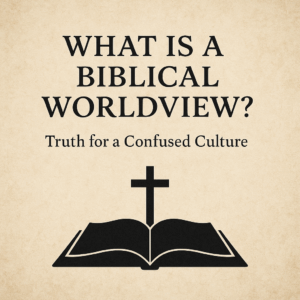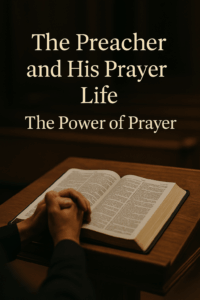⏱️ Estimated Reading Time: 4 min read
There is no real disconnect between the theological and the practical. If we are sometimes convinced otherwise, and if we often live to the contrary, their compatibility remains. Don Whitney knows this, that’s why as he approaches the issue of assurance of salvation he aims to give us what the Bible says with keen insight to personal application. How Can I Be Sure I’m A Christian? avoids the dichotomy of truth and life, by giving readers an applied theology of assurance.
Whitney writes with a pastor’s heart as he seeks to teach readers “what the Bible says about assurance of salvation.” He understands the personal struggles people face with doubt; he is sensitive to their concerns, worries, and fears. He is also attuned to the common causes of doubt and gives incredible insight into this dynamic. Readers of this volume will find not only a great theologian but a kind and comforting counselor.
The book has ten chapters that seek to unpack the nature of both assurance and salvation, and the keys to fighting the good fight of faith. Whitney starts by assuring us that not only is assurance possible, but it’s actually expected and common. Likewise, chapter two asserts that having doubts is a common Christians experience. This is an important chapter in the book as Whitney undercuts the fear that doubt of any kind means “unbelief.” In chapters 3-6 he walks readers through the means of assurance, establishing first and foremost that the basis of assurance rests on “the character of God, the work of Jesus Christ, and the truth of God’s promises” (28). This starting place is crucial for Whitney. Any other starting place will leave us with flimsy confidence. He asserts:
Assurance of a relationship with God should never be based upon an experience, a ceremony, the opinion of others, or something you have done. Reliance upon these things usually breeds doubt. You wonder if you have had the genuine experience, received from the ceremony what you should have, talked to the right people, or done quite enough. Faith in what God has done, however, produces assurance that’s steadier and sturdier. (34)
We start with God, not with self as we seek to obtain assurance.
But Whitney does not stop there; he finds that there is a proper place for the “I” in the quest for assurance. So, he notes in the remaining chapters the subjective and inner confirmation the Spirit, along with the attitudes, actions, and mindsets, that the Bible says are to accompany saving faith.
In chapters 7 and 8 Whitney directs readers to consider the common reasons we develop doubt, and issues at the heart of our uncertainty. Here readers will find helpful potential explanations for their inner struggles with assurance that will provide them with targets to address as they battle for faith. The average reader will find these chapters full of valuable insight.
The final two chapters conclude the book with a warning and encouragement. Chapter 9 focuses on those who are wrongly assured of their salvation and warns that feeling assured is not the goal, the goal is actual salvation. Whitney gives readers a look at the common sources of false assurance, some of which my surprise and some of the common characteristics of the falsely assured. Then in chapter 10, he gives some comfort, encouragement, and counsel to those who, even after all this, still feel unsure of their eternal state. His years of pastoral care evidence themselves well in these chapters.
The book overall is a fantastic resource that seeks to expose readers to the testimony of Scripture but through the means of practical life application. Nothing that Whitney writes here is abstract and disconnected from the experience and life of the individual. He has a keen interest not simply in intellectual information, but in applied theology. This is an excellent, practical, and insightful resource on assurance of salvation that I highly recommend.




